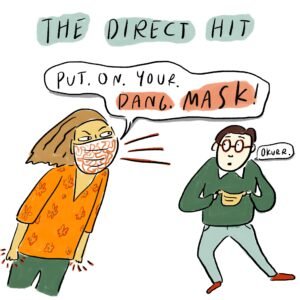Early Signs of Autism explained by Psychologist
When children with autism spectrum disorder (ASD) are babies, they often exhibit developmental differences, particularly in their social and language abilities. Less obvious differences in the development of body gestures, pretend play, and social language often goes unnoticed because they usually sit, crawl, and walk at the same time.
Families may notice differences in the way their child interacts with peers, in addition to language delays and behavioral differences.
Autism-related subtle differences can appear before a child’s first birthday and usually appear before the age of 24 months.
Recognizing the Signs of Autism
Here are some examples of social, communication, and behavioral differences in children with autism.
Keep in mind: one child with ASD will not have exactly the same symptoms as another child with ASD. The number and severity of symptoms can vary a lot!
Social Differences in Children with Autism
- Doesn’t keep eye contact or makes very little eye contact
- Doesn’t respond to a parent’s smile or other facial expressions
- Doesn’t look at objects or events a parent is looking at or pointing to
- Doesn’t point to objects or events to get a parent to look at them
- Doesn’t bring objects of personal interest to show to a parent
- Doesn’t often have appropriate facial expressions
- Unable to perceive what others might be thinking or feeling by looking at their facial expressions
- Doesn’t show concern (empathy) for others
- Unable to make friends or is uninterested in making friends
Communication Differences in Children with Autism
- Doesn’t point at things to show needs or share things with others
- Doesn’t say single words by 16 months of age
- Repeats exactly what others say without understanding the meaning (often called parroting or echoing)
- Doesn’t respond to name being called but does respond to other sounds (like a car horn or a cat’s meow)
- Refers to self as “you” and others as “I,” and may mix up pronouns
- Often doesn’t seem to want to communicate
- Doesn’t start or can’t continue a conversation
- Doesn’t use toys or other objects to represent people or real life in pretend play
- May have a good rote memory, especially for numbers, letters, songs, TV jingles, or a specific topic
- May lose language or other social milestones, usually between the ages of 15 and 24 months (often called regression)
Behavioral Differences (Repetitive & Obsessive Behaviors) in Children with Autism
- Rocks, spins, sways, twirls fingers, walks on toes for a long time, or flaps hands (called “stereotypic behavior”)
- Likes routines, order, and rituals; has difficulty with change or transition from one activity to another
- Obsessed with a few or unusual activities, doing them repeatedly during the day
- Plays with parts of toys instead of the whole toy (e.g., spinning the wheels of a toy truck)
- Doesn’t seem to feel pain
- May be very sensitive or not sensitive at all to smells, sounds, lights, textures, and touch
- Unusual use of vision or gaze—looks at objects from unusual angles




